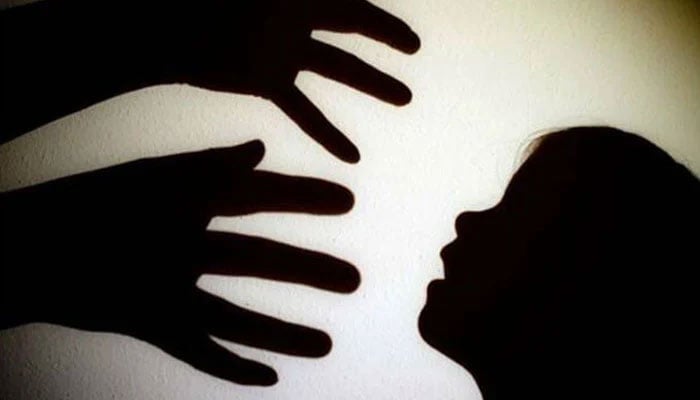Our children are not safe
Pakistanis came together to vow to make this country free from paedophiles who prey on vulnerable children
In 2015, the Kasur child abuse scandal shook the entire nation. Human rights activists, lawmakers, political leaders, and a majority of Pakistanis came together to vow to make this country free from paedophiles who prey on vulnerable children and release their videos on the dark web. Almost a decade has passed since the news of a paedophile ring broke out, and recent statistics suggest that the enthusiasm that people showed to make the country safer has fizzled out.
On Friday (Jan 5), the Senate Standing Committee on Interior was informed that the conviction rate in child pornography cases stands at 27 per cent. In the last two years, 184 FIRs were registered, and 225 offenders arrested. These disappointing figures say a lot about where the priorities of our government lie. Authorities have conveniently betrayed millions of children who remain an easy target for miscreants who sexually abuse them, film them, and then use their videos for illicit gains. What is even more appalling is the realization that our government’s response to this issue is quite weak. For instance, during the meeting, the committee recommended that “websites containing questionable material should be banned”. The mere suggestions expose the lack of awareness most policymakers have in the country.
Child pornography has a sizeable market on the dark web – a component of the internet where websites are not indexed on search engines, which means that most search engines (including Google) do not know whether the page exists. The part of the web where such illicit exchange of explicit content occurs is away from what we call ‘surface web’ where websites are easily searchable. Protected and largely untraceable sites where a thriving illegal market exists are not accessible through the traditional search engines. ‘Banning the websites’ will not resolve the problem. A proper crackdown against people involved in child pornography requires a team of tech and cybersecurity experts who can help authorities trace people responsible for the illegal trade.
That our country is unsafe for hundreds of thousands of children is an unfortunate reality – known to many and yet no government has carried out any meaningful action to keep these children safe. The Zainab case in 2018 highlighted how perpetrators lurk among us, but the case was slowly reduced to a hashtag. Pakistan has so many vulnerable children who are found by miscreants looking for someone to exploit. As the nation sleeps peacefully, unaware about the dangers that lurk in the corners of the country, thousands of orphaned and homeless children are caught by people who see their bodies as their ticket to quick riches. This cycle of abuse has to end. And the authorities have to learn more about the technology and tools that perpetrators use to further their agendas.
-
 Winter Olympics 2026: Lindsey Vonn’s Olympic Comeback Ends In Devastating Downhill Crash
Winter Olympics 2026: Lindsey Vonn’s Olympic Comeback Ends In Devastating Downhill Crash -
 Adrien Brody Opens Up About His Football Fandom Amid '2026 Super Bowl'
Adrien Brody Opens Up About His Football Fandom Amid '2026 Super Bowl' -
 Barbra Streisand's Obsession With Cloning Revealed
Barbra Streisand's Obsession With Cloning Revealed -
 What Did Olivia Colman Tell Her Husband About Her Gender?
What Did Olivia Colman Tell Her Husband About Her Gender? -
 'We Were Deceived': Noam Chomsky's Wife Regrets Epstein Association
'We Were Deceived': Noam Chomsky's Wife Regrets Epstein Association -
 Patriots' WAGs Slam Cardi B Amid Plans For Super Bowl Party: She Is 'attention-seeker'
Patriots' WAGs Slam Cardi B Amid Plans For Super Bowl Party: She Is 'attention-seeker' -
 Martha Stewart On Surviving Rigorous Times Amid Upcoming Memoir Release
Martha Stewart On Surviving Rigorous Times Amid Upcoming Memoir Release -
 Prince Harry Seen As Crucial To Monarchy’s Future Amid Andrew, Fergie Scandal
Prince Harry Seen As Crucial To Monarchy’s Future Amid Andrew, Fergie Scandal -
 Chris Robinson Spills The Beans On His, Kate Hudson's Son's Career Ambitions
Chris Robinson Spills The Beans On His, Kate Hudson's Son's Career Ambitions -
 18-month Old On Life-saving Medication Returned To ICE Detention
18-month Old On Life-saving Medication Returned To ICE Detention -
 Major Hollywood Stars Descend On 2026 Super Bowl's Exclusive Party
Major Hollywood Stars Descend On 2026 Super Bowl's Exclusive Party -
 Cardi B Says THIS About Bad Bunny's Grammy Statement
Cardi B Says THIS About Bad Bunny's Grammy Statement -
 Sarah Ferguson's Silence A 'weakness Or Strategy'
Sarah Ferguson's Silence A 'weakness Or Strategy' -
 Garrett Morris Raves About His '2 Broke Girls' Co-star Jennifer Coolidge
Garrett Morris Raves About His '2 Broke Girls' Co-star Jennifer Coolidge -
 Winter Olympics 2026: When & Where To Watch The Iconic Ice Dance ?
Winter Olympics 2026: When & Where To Watch The Iconic Ice Dance ? -
 Melissa Joan Hart Reflects On Social Challenges As A Child Actor
Melissa Joan Hart Reflects On Social Challenges As A Child Actor




